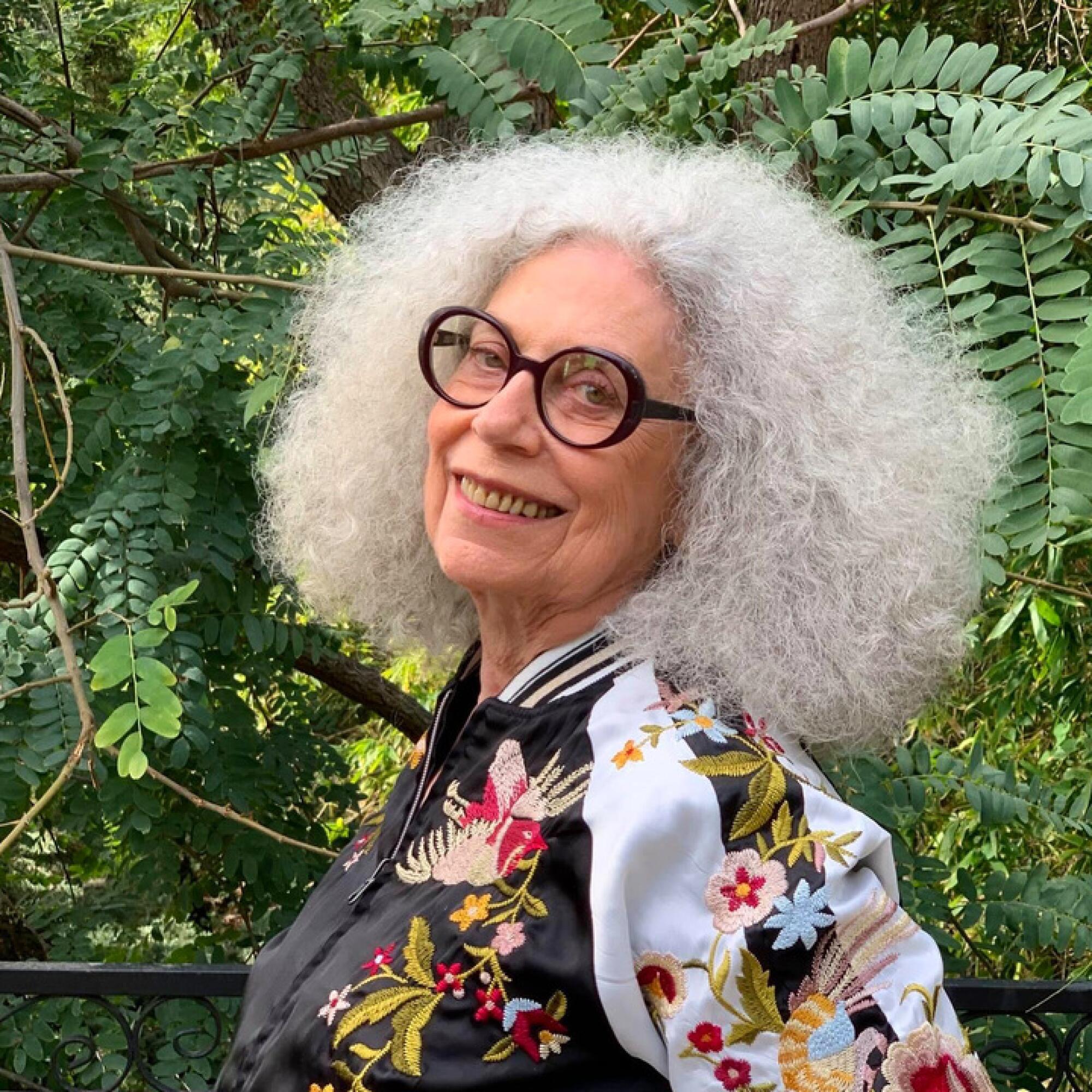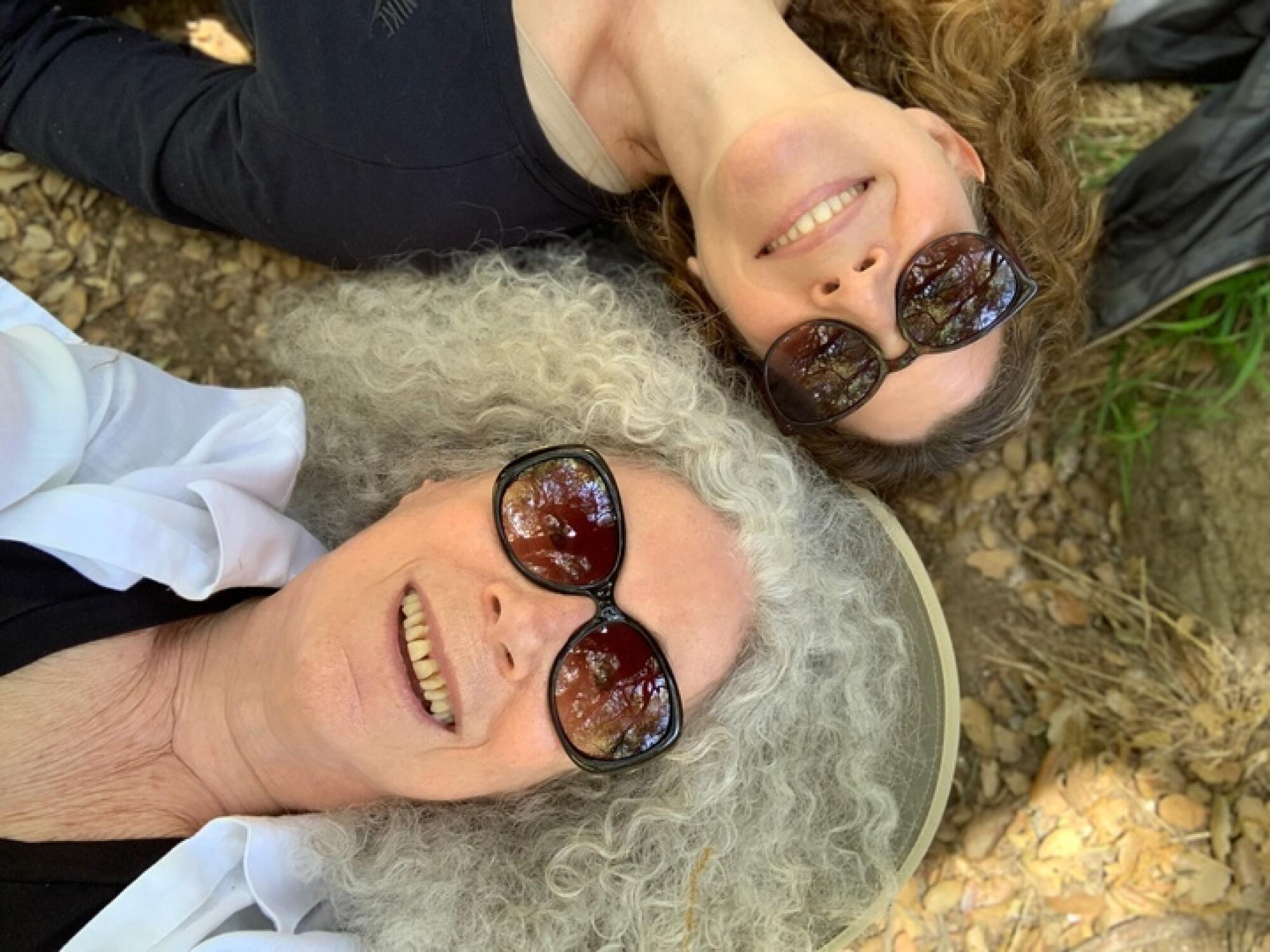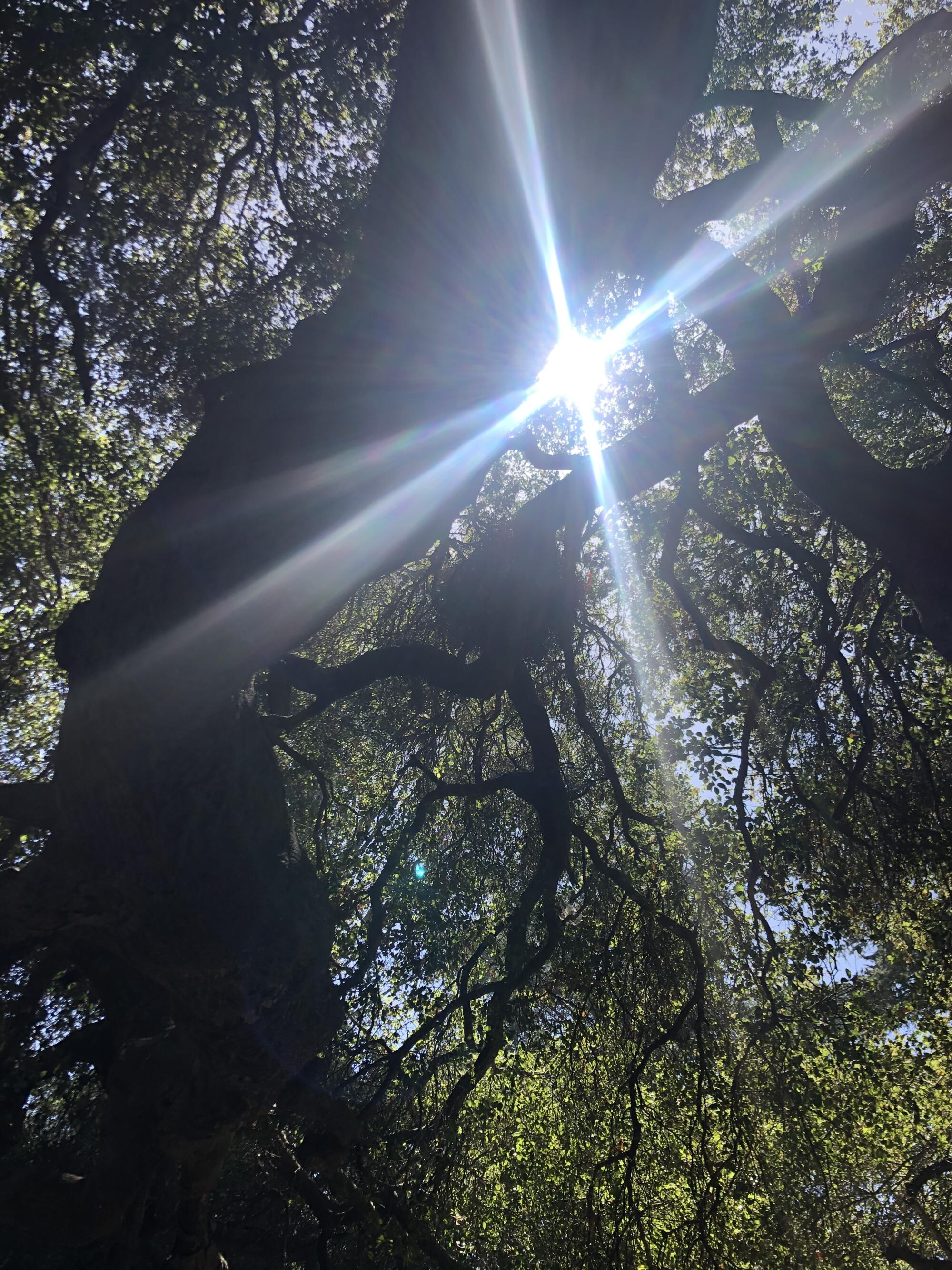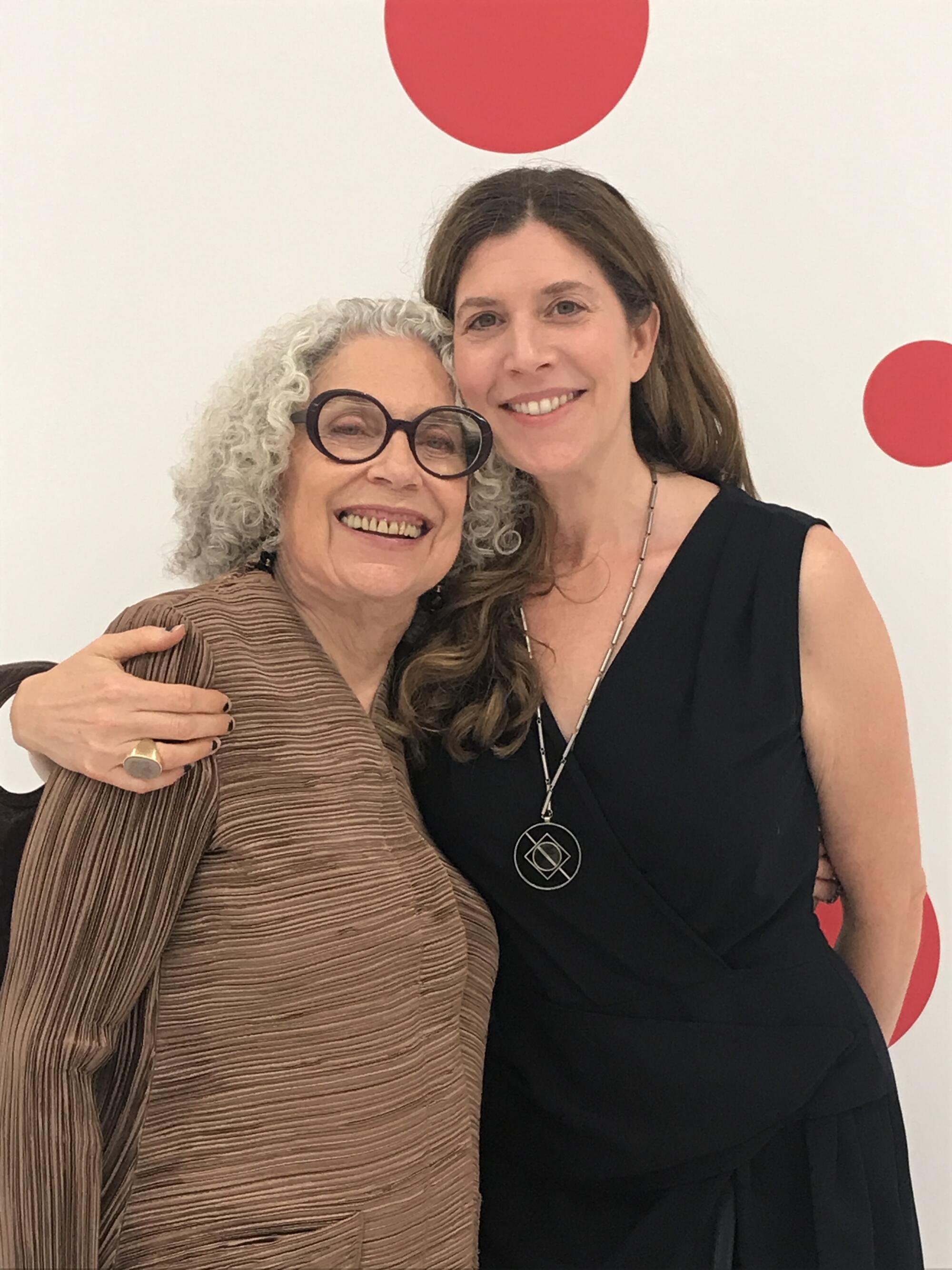She was 63.
I was 33.
We shared cocktails at a rooftop bar overlooking Sunset Boulevard during golden hour. And the connection was palpable.
No, this isn’t the start to an “L.A. Affairs” romance column. But it is about a love affair of sorts. My best girlfriend of the last two decades is 30 years older than me.
I met Loraine in 2001. I was newly married and working as an associate arts editor at L.A. Weekly, where I was writing book reviews and covering the arts. A friend introduced us at a literary salon one evening. It was a brief business exchange. We were sitting on the floor of the now-shuttered French-Vietnamese restaurant Le Colonial, cross-legged on silk pillows awaiting the start of the readings. Loraine leaned over and gave me her card, mentioning she had just published a debut novel.
“It’s about marriage, adultery and regular church attendance,” she whispered, clearly pleased with her pithy elevator pitch. I stuffed the card in my purse.
A few weeks later Loraine convinced me to meet her for apple martinis at a rooftop restaurant on Sunset Boulevard. I had been hesitant to spend a free evening with a relative stranger who was a generation-plus older than I and with whom I assumed I had little in common. My friends at the time were all raucous creative types in their 20s and early 30s. Clichés raced through my head: Would she be stuffy or old-fashioned? Would we have anything to talk about? I’d have to watch my manners.
“I’ll be home within the hour,” I told my husband, determined to keep the meeting quick and cordial, a professional nicety.
But our conversation stretched on and on. I learned Loraine had grown up in a small town just north of New Orleans, one of the only Jewish families there at the time. She’d studied art in Paris during college — and she regaled me with stories of ill-fated romances she’d had there — before breaking into Hollywood as a TV writer in the 1970s. She penned what many consider the single most iconic TV show in pop culture history in 1980, the “Who Shot J.R.?” episode of “Dallas.”
“Then I made a pivotal mistake in my career,” she told me.
“What?!” I was rapt.
“I turned 50. That was it. Hollywood stopped calling,” she said, shrugging matter-of-factly. “So I turned to writing novels instead.”
“The Scandalous Summer of Sissy LeBlanc” would go on to become a national bestseller.

Loraine Despres Eastlake in 2021.
(Wendi Weger)
It was one of those mysterious, pivotal nights. Seemingly benign at the time, it proved to be life-changing in hindsight. Loraine’s resilience and joie de vivre was inspiring. I didn’t for a minute notice the age gap — and haven’t to this day.
Sure, Loraine has curly, silver hair and oversized glasses and, at 86, now walks a tad more gingerly than she used to. But I don’t see an older woman when I look at her; I see the essence of a person, timeless and ageless, housed in a corporeal shell (one that’s in pretty darn good shape, I should add). I see a teenage girl, still ever-curious about the world around her. I see a 20-something woman, still evolving through new creative pursuits, most recently poetry writing. I see an accomplished power player in midlife at the peak of a highly successful TV writing career, self-satisfied and oozing with agency. I see a woman, late in life, struggling to unearth new pathways toward creative and intellectual relevance — and succeeding.
Suffice to say: My editor ended up passing on the book review, but Loraine got me instead.
As our friendship blossomed I learned that Loraine was all kinds of fabulous. She was part New York intellectual, part West Coast hippie, part Hollywood elite. Her closet was stuffed with expensive designer clothes, which she often passed over for unassuming yogawear. She drank Prosecco and swam naked in her cobalt-tiled pool. She once convinced me to spend the entire afternoon lying on our backs, in the dirt, beneath an old and glorious oak tree in Franklin Canyon Park, the sun glimmering through the leaves.

Loraine Despres Eastlake, left, and Deborah Vankin lie on the ground under a tree in Franklin Canyon Park in 2022.
(Deborah Vankin)

The sun shimmering through tree leaves provided the afternoon’s entertainment.
(Deborah Vankin)
She knew so much about art, an interest we bonded over and which would become a throughline of our friendship. When I began covering art for The Times, she became one of my go-to plus-ones for museum and gallery openings. We’ve taken that interest abroad too, touring art studios in Cuba, visiting museums in Vienna and, most recently, journeying to Japan’s art island, Naoshima.
I suppose this is where I relay how the three-decade age gap has provided illuminating pearls of wisdom during divorce, career changes and aging woes. But honestly? That’s not been the case. Loraine is there for me in an emergency, but she isn’t the motherly, advice-dispensing type.
Rather, Loraine teaches by example. She’s living proof that fabulousness is about attitude, not age. And that vitality has less to do with hip mobility than it does a sustaining lust for life and unrelenting curiosity about the world. I wonder: Had I not met Loraine, would I be aging, now, with as much ease and universality? Would I be more susceptible to the rigid and relentless stereotypes with which society brands women of a certain age? Loraine is, above all else, a writer. And the narrative she’s crafted for herself — a feminist art scholar turned advertising copywriter and single mother turned happily remarried TV writer turned novelist turned poet — bucks society’s expectations. I hope to continue writing it.
“Oh, it’s so nice you have a surrogate mother in L.A.,” my own mother would often say of Loraine when she visited from the East Coast. Loraine is older than my mom and the fact that I had a “kind of aunt-like person” living nearby brought her comfort.
Loraine would bite her lip whenever my mom said that; but afterward, we’d marvel at the mischaracterization of our friendship. Our conversations are devoid of motherly energy; instead they range from our romantic lives to clothes to books and contemporary art. Our recent Japan trip included several nights at a yurt camp by the sea (which we abandoned due to mold).
Last July Fourth we climbed atop an Echo Park hillside, took edibles and watched the fireworks melting across the sky.
“Really, where do you think we go when we die?” I asked in a haze.
“Beats me,” she said, chuckling. “Pass the nuts, will you?”
Then we burst out laughing.
The beginning of the 2020 pandemic was the first time I ever felt our age gap. Our experiences sheltering in place were very different. I was batch-cooking soup and binge-watching FX’s “Better Things,” relishing what felt like a rare solitude. Loraine became low-level depressed and, as the months of the pandemic turned to years, tinged with bitterness. It was a rare mood for the typically happy-go-lucky Loraine.
“It’s like being robbed of the last years you have left,” she’d say on the phone. “I’m withering here at home.”
Recently, Loraine’s taken to repeating herself, as is the case with almost anyone her age.
“So what are you up to this weekend?” she’ll ask me on the phone, minutes after I answered the question already.
I just politely repeat myself, resigned to a sort of linguistic meditation, learning to enjoy the same conversation threads over and over again.
When we broached the issue recently, she told me, sighing: “I suffer from CRS.”
I braced myself for what that meant.
“Can’t Remember Shit,” she said, laughing — one of her long, loose chuckles that trails off with a cheery whine, as if she were a flapper wielding a cigarette holder in the air, head tossed back in the wind. “It is what it is.”
I’ve found myself using that phrase a lot lately: It is what it is. Loraine may not overtly mentor me in life, but her open embrace of whatever life offers reminds me to be present, to live in the moment.

Loraine Despres Eastlake, left, and Deborah Vankin in a Yayoi Kusama art installation in 2018.
(From Deborah Vankin)
Thinking about our friendship, I see a supercut of us: the time Loraine and I danced on a cafe rooftop in Cuba to live music; when we sailed through the air on trampolines on my 45th birthday with ’80s music playing over the loudspeaker; the New Year’s Eve we posed for selfies in wigs at a friend’s house; Loraine chasing a flying cockroach around our Miami hotel room as I squealed from atop the bed; her pure, unabashed joy when we rounded a corner in a Naoshima museum recently and she found a Cy Twombly work on display.
We were, in all those moments, 16 and 35 and 86. We meet somewhere in the middle, in the universal mind meld that is true friendship. And I’m grateful for every year of it.





